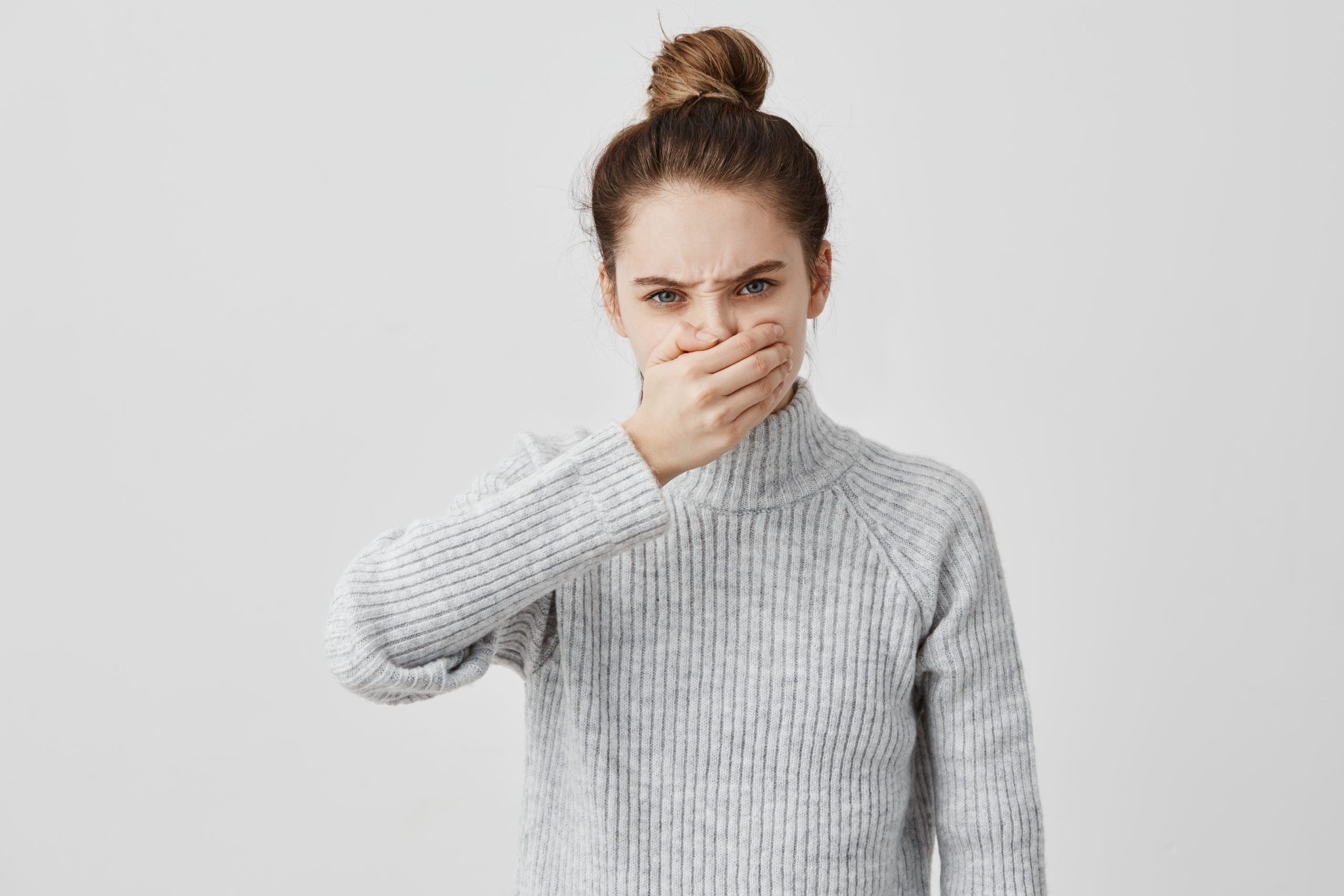Causes of Bad Breath and Treatments
Bad breath, also known as halitosis, is a common problem that affects many people around the world, and it can be a reason of embarrassment for those who suffer from it. While bad breath can be caused by a variety of factors, it is usually the result of poor oral hygiene. In this article, we will discuss the causes of bad breath and some effective solutions that can help you get rid of it for good.

Causes of Bad Breath
As mentioned earlier, poor oral hygiene is the most common cause of bad breath. However, there are other factors that can cause to bad breath as well. For example, certain foods and drinks, such as garlic, onions, and coffee, can leave a long-standing smell in your mouth. Smoking and tobacco use are also major causes of bad breath. Smoking can dry out your mouth and leave a long-standing smell, and tobacco products can also stain your teeth and increase the risk of gum disease and oral cancer. Additionally, dry mouth can be a contributing factor, as it can cause bacteria to thrive and produce an unpleasant odor. Some medications, medical conditions, and breathing through your mouth can also cause dry mouth.
Other medical conditions may also cause bad breath. For example, sinus infections, digestive issues, and liver or kidney problems can all cause a foul odor in your mouth. Additionally, some people may experience bad breath due to a condition called tonsil stones, which are small, hard deposits that form in the crevices of your tonsils.

Solutions for Bad Breath
But we have a good news as Alfa Dental Center, bad breath can often be prevented or treated with simple lifestyle changes and proper oral hygiene. Here are some effective solutions for bad breath:
1. Have a Good Oral Hygiene
Brushing and flossing your teeth regularly is one of the most important things you can do to prevent bad breath. Make sure to brush your teeth at least twice a day and floss at least once a day. You can also use a tongue scraper to remove bacteria from your tongue.
2. Stay Hydrated
Drinking plenty of water can help keep your mouth moist and prevent bad breath. When your mouth is dry, saliva production decreases, which can lead to bad breath. Determine yourself to drink at least eight glasses of water a day. If you’re prone to dry mouth, you can also try using a room humidifier at night to keep the air moist in your bedroom.
3. Avoid Certain Foods and Drinks
Certain foods and drinks can cause bad breath, such as garlic, onions, coffee, and alcohol. These foods contain compounds that can be absorbed by your bloodstream and carried to your lungs, where they can affect your breath. Try to avoid these foods, or at least limit your intake. You can also try chewing fresh parsley, mint, or cinnamon, which can help freshen your breath naturally.
4. Quit Smoking
Smoking is a major cause of bad breath, as it can dry out your mouth and leave a lingering odor. In addition, smoking can also stain your teeth and increase your risk of gum disease and oral cancer. Quitting smoking will not only improve your breath but also your overall health. If you need help quitting, talk to your doctor or a smoking cessation specialist.
5. Visit Your Dentist
If you have persistent bad breath despite practicing good oral hygiene, it may be a sign of an important dental or medical issue. For example, gum disease, cavities, and oral infections can all cause bad breath. Our expert dentists at Alfa Dental Center can examine your mouth and teeth to determine the cause of your bad breath and recommend appropriate treatment. In addition, some medical conditions such as diabetes, liver disease, and respiratory infections can also cause bad breath. If your dentist suspects a medical issue, they may refer you to a doctor for further evaluation.
In addition to the above solutions, there are some other steps you can take to prevent bad breath:
6. Chew Sugarless Gum or Use Breath Mint
Chewing sugarless gum or using a breath mint can help stimulate saliva production and freshen your breath. Look for products that contain xylitol, which is a natural sweetener that can also helps preventing cavities.
7. Use Mouthwash
Using an antiseptic mouthwash can help kill bacteria in your mouth and freshen your breath. Look for a mouthwash that contains essential oils, such as peppermint or tea tree oil, which can help to kill bacteria without drying out your mouth.
8. Try Oil Pulling
Oil pulling is an ancient Ayurvedic practice that involves swishing oil around in your mouth to remove bacteria and toxins. Coconut oil is a popular choice for oil pulling, as it has antibacterial properties and a pleasant taste. To try oil pulling, wash out a tablespoon of coconut oil in your mouth for 15-20 minutes, then spit it out and rinse your mouth with water.
Conclusion
Bad breath can be an unpleasant and embarrassing problem, but there are many solutions available that can help you to get rid of it for good. By practicing good oral hygiene, staying hydrated, avoiding certain foods and drinks, quitting smoking, and visiting your dentist and doctor regularly, you can improve your breath and overall oral and general health. If you’re still struggling with bad breath despite making these changes, don’t hesitate to seek professional help and we are always here for you to offer the best service. Our dentists can work with you to develop an individualized treatment plan that addresses the underlying cause of your bad breath. Remember, taking care of your oral health is an important part of maintaining your overall health and well-being.
It’s also important to note that bad breath can have a negative impact on your personal and professional relationships. If you’re self-conscious about your breath, you may avoid social situations or feel anxious when speaking to others. However, by taking steps to improve your breath, you can regain your confidence and enjoy a healthier, more fulfilling life. Don’t let bad breath hold you back – take action today to improve your oral health and overall well-being.

